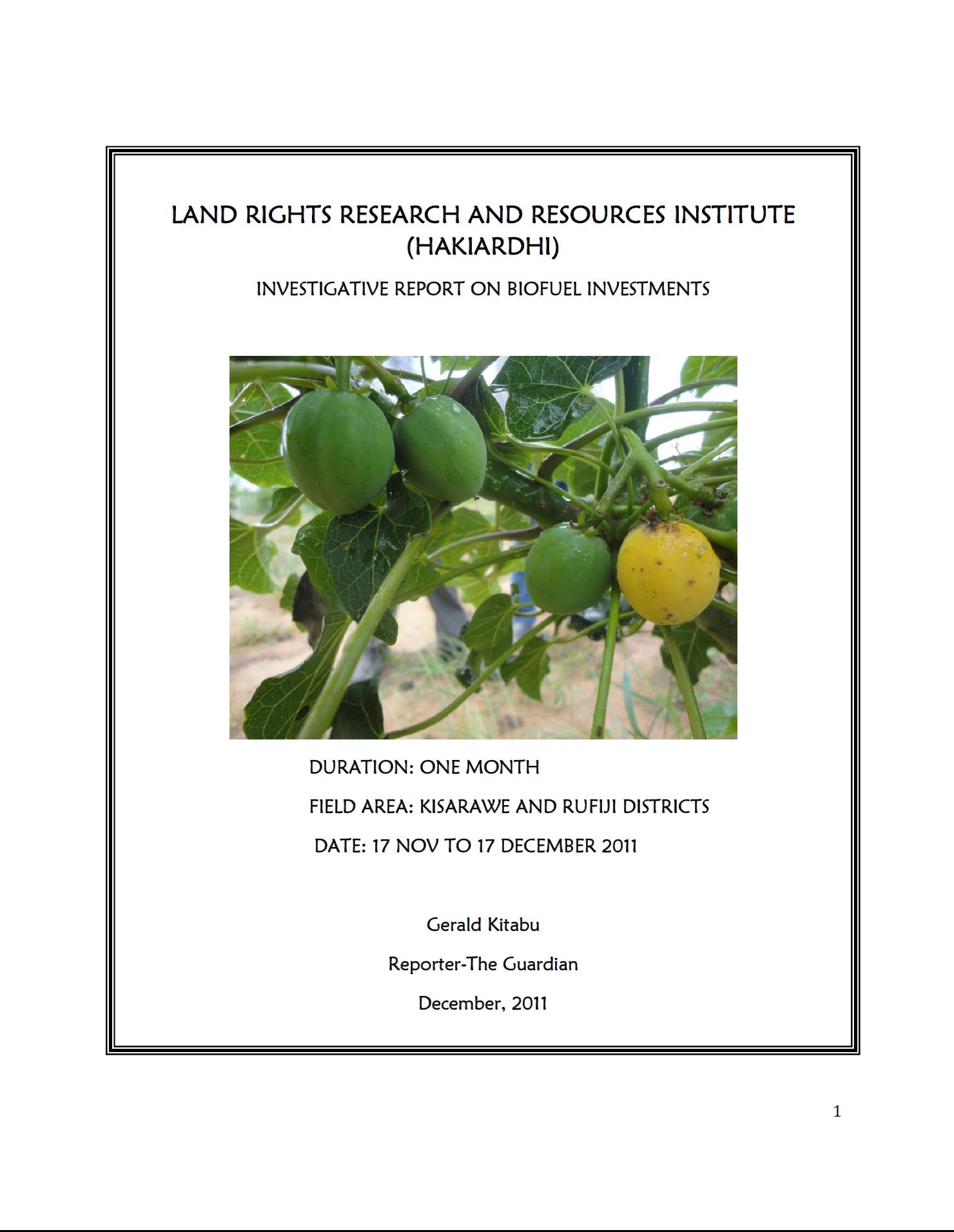Resource information
Increasing investments in biofuel production follow a shift of energy demand,in developed nations from fossil fuel to bio energyto run machines. Consequently, there has is an accelerated influx of investors from the Europe, Asia and Americain quest for productive and fertile lands.
Proponents of the biofuel investments say the investment will improve among other things, agricultural production, add value to local products and markets and improve social services such as roads infrastructure, health facilities, clean water supply and education.
Diversifying a wide variety of energy alternatives is a good thing, but bio-energy projects are usually associated with negative impacts. This has raised concern among civil society organizations and other stakeholders on the negative impacts especially land grabbing and environmental degradation.
Today,while the investors are increasingly taking over land from the indigenous people to grow jatropha, maize and sugar cane for biofuel land laws and policies in the areas concerned remain decadent.
Changing land laws and policies to benefit locals could be one of the major steps towards creating equitable balance between people’s interests and the interests of foreign investors. This should go along with empowering local communities to invest in various sectors.
If land laws and policies are left unchecked there is danger of creating vagabonds and criminals in big cities due to influx of people whose farms are taken over or grabbed by investors, because for them the only option would be to move to urban areas to earn a living. In the case of Tanzania, this will lead to the worsening of the current unemployment.
A critical analysis of how investors are treated today is a reminiscence of colonial rule where colonialists backed by some local chiefs were transferring wealth and investing in plantations to produce raw materials for industries abroad.
During colonialism, land alienation, forced labour, bad working conditions and discrimination were the order of the day. Today, it is also happening in some areas where biofuel investors have launched projects.


